Only 37% of Leaders View Sustainability Deeply Embedded Within Their Organization, Report Finds
It has become evident that a significant chasm exists between the proclaimed sustainability commitments of corporations and their actual operational practices, based on the recent report "Sustainable Value Creation: Closing the gap between stated commitments and operational realities" by sustainability experts Dr. Robert Eccles and Alison Taylor, in partnership with GlobeScan and Salesforce.
Despite a broad acknowledgment of sustainability as a critical component of value creation, the report unveils that many enterprises have yet to fully embed sustainability principles across all C-suite functions, highlighting a substantial barrier to genuine sustainable value creation.
The urgency of integrating sustainability into the core strategic framework of businesses has never been more pronounced. As the world grapples with escalating environmental challenges and shifting societal expectations, companies are under increasing pressure to demonstrate not just a nominal commitment to sustainability but tangible, impactful actions that reflect this pledge.
The report's findings are grounded in a survey conducted between November and December of 2023, which engaged 234 senior professionals across a diverse range of industries. These leaders, primarily from finance, technology, and sustainability functions, provided invaluable insights into the value of sustainability, the barriers it faces, and the progress on integration within finance and technology functions.
A striking finding from the research is that while over 90% of respondents deem sustainability as "very important" (67%) or "fairly important" (26%) to commercial success, there exists a significant "Capital Gap." About 50% of senior management teams assert a high focus on sustainability, yet only half of these cases receive the requisite capital to effectively address sustainability risks, seize opportunities, or manage impacts.
Equally concerning is the "Implementation Gap," another critical area highlighted, with sustainability predominantly seen as enhancing brand reputation rather than driving operational value. This perception starkly contrasts with the need for sustainability to contribute to core commercial areas such as sales growth, investment attraction, supply chain stability, cost reduction, and climate risk management.
The "Integration Gap" further complicates the landscape, with only 37% of respondents viewing sustainability as deeply embedded within their organizational fabric. This lack of integration, especially in key areas like finance and technology, hampers the holistic application of sustainability principles in strategic decision-making.
Compounding these challenges is the "Data Gap," with only 27% of leaders having access to high-quality sustainability data. This deficit in reliable data not only impedes effective sustainability management and reporting but also complicates compliance with emerging regulatory standards such as those set by the ISSB and CSRD.
The Imperative for Action
The report not only identifies critical barriers but also underscores the need for targeted strategies to bridge these gaps. It advocates for a more robust allocation of capital towards sustainability initiatives, ensuring that financial investments align with the professed importance of sustainability. Furthermore, it calls for a shift in perspective, recognizing sustainability as a driver of operational efficiency and commercial success, rather than merely a reputational tool.
Enhancing cross-functional collaboration, particularly between sustainability, finance, and technology departments, is essential for fostering a culture of sustainability that permeates every aspect of business operations. Additionally, improving access to high-quality sustainability data is crucial for informed decision-making, enabling businesses to track progress, identify areas for improvement, and comply with regulatory requirements.
"Sustainable Value Creation: Closing the gap between stated commitments and operational realities" offers a critical analysis of the current state of corporate sustainability efforts. By highlighting the discrepancies between commitments and actions, the report serves as a wake-up call for businesses to reevaluate their approach to sustainability. The time for half measures is over; the future of business lies in the seamless integration of sustainability into every aspect of operations, driving not only environmental and social impact but also long-term commercial success.
About the authors and collaborating organizations:
Alison Taylor, a Clinical Associate Professor at NYU Stern School of Business and the Executive Director at Ethical Systems, brings a deep understanding of strategy, sustainability, and ethics to this report. Her extensive background, including roles at BSR and Control Risks, coupled with her advisory positions, positions her as a leading voice in the sustainability dialogue.
Robert G. Eccles, a Visiting Professor of Management Practice at the Saïd Business School, University of Oxford, is recognized for his expertise in ESG, sustainability, and sustainable investing. His distinguished career, including tenure at Harvard Business School and involvement with various councils and advisory boards, underscores his profound influence on corporate sustainability practices.
GlobeScan, an insights and strategy consultancy established in 1987, is renowned for its commitment to helping organizations navigate the complexities of sustainability and equitable future strategies. As a Certified B Corp with a global footprint, GlobeScan brings a wealth of experience and a diverse perspective to this research.
Salesforce, celebrated as the #1 CRM for nine consecutive years, is at the forefront of digital transformation, helping businesses of all sizes and industries connect with their customers innovatively. Through its Customer 360 platform, Salesforce champions values of trust, customer success, innovation, equality, and sustainability, making it a pivotal partner in this research endeavor.
For personalized guidance on integrating sustainability into your business operations, reach out to The ESG Institute. Our experts are here to help you navigate the complexities of ESG implementation and drive meaningful change.

